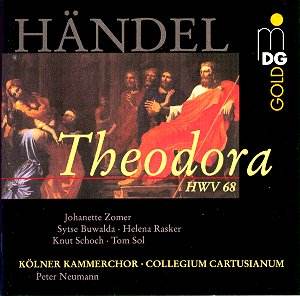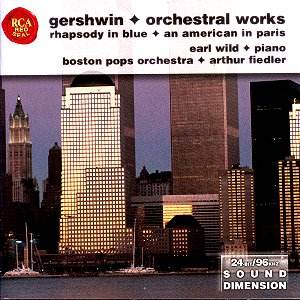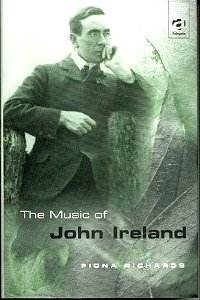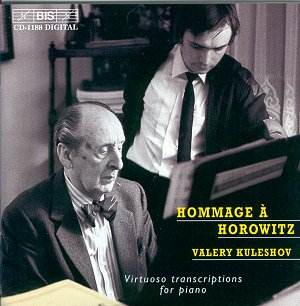 Composer: Georg Friedrich Handel
Composer: Georg Friedrich Handel
Works: Theodora HWV 68
Performers: Johanette Zomer, soprano; Syste Buwalda, alto; Helena Rasker, mezzo-soprano; Knut Schoch, tenor; Tom Sol, bass; Marco Schweizer, tenor; Kölner Kammerchor; Collegium Cartusianum; Peter Neumann
Recording: Live recording, February 6, 2000, Stadthalle, Wuppertal, Germany
Label: MDG
Handel’s oratorio “Theodora,” composed in 1749, stands as a poignant testament to the composer’s ability to blend dramatic narrative with profound musical expression. Initially a box office failure, likely due to its controversial themes of female resistance and the socio-political climate of post-earthquake London, “Theodora” has since garnered recognition as one of Handel’s most profound works. The oratorio’s exploration of virtue in the face of persecution resonates powerfully, and this recording under Peter Neumann’s direction brings a compelling interpretation to this rich tapestry of emotion and spirituality.
Neumann’s ensemble, comprising the Kölner Kammerchor and Collegium Cartusianum, offers a nuanced choral texture, characterized by clarity and warmth. The choir’s ability to navigate the intricate counterpoint of Handel’s writing while maintaining an engaging presence is commendable. Their articulation in choral movements is particularly notable, avoiding the heaviness often found in larger ensembles. This clarity serves to enhance the emotional weight of the text, especially in the choral pieces such as “O Love Divine,” where fervor and devotion are palpable.
The solo performances present a mixed landscape. Syste Buwalda, tasked with the challenging role of Didymus, exhibits moments of vocal uncertainty. His interpretation suggests a hesitancy that detracts from the character’s heroic stature. This is a notable shortcoming, especially given that the role was originally tailored for a castrato, demanding a certain virtuosity and confidence that Buwalda struggles to convey. In contrast, Knut Schoch delivers a standout performance as Septimus, particularly in his aria “Descend, kind Pity, heavenly Guest.” His lyrical phrasing and emotional depth resonate well, embodying the sorrow and longing inherent in the text.
Helena Rasker’s portrayal of the title character’s intricate emotional landscape is powerful. Her aria “As with rosy steps the Morn” is delivered with a lush, flowing tone that captivates, despite a slight overuse of vibrato that occasionally obscures the clarity of her lines. Johanette Zomer, as Theodora, shines in “With Darkness, deep as is my woe,” navigating the complexities of the melodic line with an exquisite control that brings out the aria’s poignant despair. The interplay between Zomer’s liquid tone and the delicate orchestration creates a haunting atmosphere, effectively capturing Theodora’s internal struggle.
The recording quality is commendable, with the live setting providing an intimate yet dynamic ambiance. The engineering captures both the orchestral and vocal forces with an impressive balance, allowing for the delicate dialogues between instruments and voices to emerge clearly. This sonic clarity enhances the listener’s engagement with the work, making it a valuable addition to the catalog of Handel performances.
This interpretation of “Theodora” successfully aligns a fine selection of soloists with an excellent choir, supported by the sensitive orchestral playing that has become synonymous with Neumann’s recordings. While some vocal performances may not fully meet the high standards set by their colleagues, the overarching musicality and commitment to the text create an experience that is both moving and thought-provoking. In the realm of Handel’s oratorios, this recording stands as a significant representation of “Theodora,” bringing forth the oratorio’s inherent beauty and emotional complexity, making it an essential listen for both newcomers and seasoned admirers of Handel’s work.



